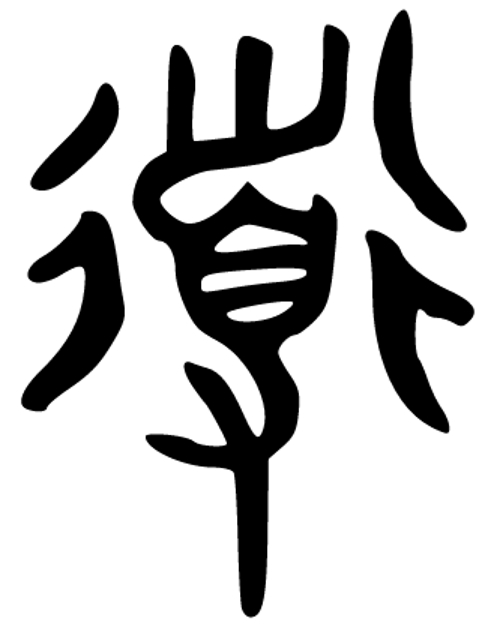Gnostic Insights

Gnosis and the Tao Te Ching, v. 21, 4, & 48
The Tao Te Ching, or Book of the Way, is an ancient Chinese collection of 81 wisdom verses. In Gnostic terminology, the Tao spoken of by Lao Tzu refers to the Father. The principles of organization that have informed our universe since the moment before creation refers to the Fullness of God. Non-being refers to clearing your personal Unit of Consciousness of egoic memes and karma to reveal your truest Self. Non-action refers to allowing the Fullness of God to direct your actions for the greater good.
Here is the 21st verse of the Tao Te Ching, which I have translated directly into Simple Explanation terminology from an original verbatim translation by Jonathan Star.
Tao Te Ching, Verse 21
Highest virtue arises through total alignment with the originating source of consciousness.
How to become one with this elusive source? By disregarding everything else.
Oh, so elusive! So very indistinct! Yet within its dimensionless center, dimensions form.
So uncertain! So intangible! Yet its middle contains the latent substance of all things.
So profound! Such a mystery! Housed deep within that mysterious middle–the seed of life is consciousness itself.
The life force within is self-evident. Thus, life itself provides trustworthy evidence of the originating source.
From the first moment until now, the manifestations of consciousness remain ever the same. Thus do we all bear witness to the Creator, the Originator.
This is accordingly how I know the ways of everything and the origin of all things: by observing what is within me.
Verse 4, the Mitchell translation
The Tao is like a well: used but never used up.
It is like the eternal void: filled with infinite possibilities.
It is hidden but always present.
I don’t know who gave birth to it. It is older than God.
A Simple Explanation of Verse 4:
The information and principles of organization streaming into our universe arise from an infinite source.
The eternal void is the resting state of the Father—pure consciousness without pattern or form but filled with limitless potential.
The Father’s consciousness cannot be seen or measured, but it surrounds and informs our universe.
Consciousness is not the same as God—it existed prior to God’s first thought.
Verse 48, the Mitchell translation
In the pursuit of knowledge, every day something is added. In the practice of Tao, every day something is dropped.
Less and less do you need to force things, until finally you arrive at non-action.
When nothing is done, nothing is left undone.
True mastery can be gained by letting things go their own way. It can’t be gained by interfering.
A Simple Explanation of Verse 48:
People believe that the more they know, the better off they and the world will be. However, academic study leads to the acquisition of academic memes, which tend to obscure best solutions. When we drop memes rather than add them, we allow transcendent patterns of organization and information to work through us.
When we make plans and do work according to our limited vision and personal desires, we strain to get things right. Acting only when truly inspired, the Fullness of God works through us.
When one’s Self does nothing of its own accord, the Fullness of God can do exactly what needs to be done.
Best results arise from inspired action. “Letting go and letting God” allows the Fullness to use us in the most efficient manner for the greatest good.
 The earliest written forms of dao are bronzeware script and seal script characters from Zhou Dynasty (1045–256 BCE) bronzes and writings. These ancient dao characters more clearly depict the shou 首 “head” element as hair above a face. Some variants interchange the chuo 辵 “go; advance” radical with the xing 行 “go; road” radical, with the original bronze “crossroads” depiction written in the seal character with two 彳 and 亍 “footprints”. Bronze scripts for dao 道 occasionally include an element of shou 手 “hand” or cun 寸 “thumb; hand”, which occurs in dao 導 “lead”. wikipedia article “Tao”
The earliest written forms of dao are bronzeware script and seal script characters from Zhou Dynasty (1045–256 BCE) bronzes and writings. These ancient dao characters more clearly depict the shou 首 “head” element as hair above a face. Some variants interchange the chuo 辵 “go; advance” radical with the xing 行 “go; road” radical, with the original bronze “crossroads” depiction written in the seal character with two 彳 and 亍 “footprints”. Bronze scripts for dao 道 occasionally include an element of shou 手 “hand” or cun 寸 “thumb; hand”, which occurs in dao 導 “lead”. wikipedia article “Tao” 





 Visit Podcast Website
Visit Podcast Website RSS Podcast Feed
RSS Podcast Feed Subscribe
Subscribe
 Add to MyCast
Add to MyCast